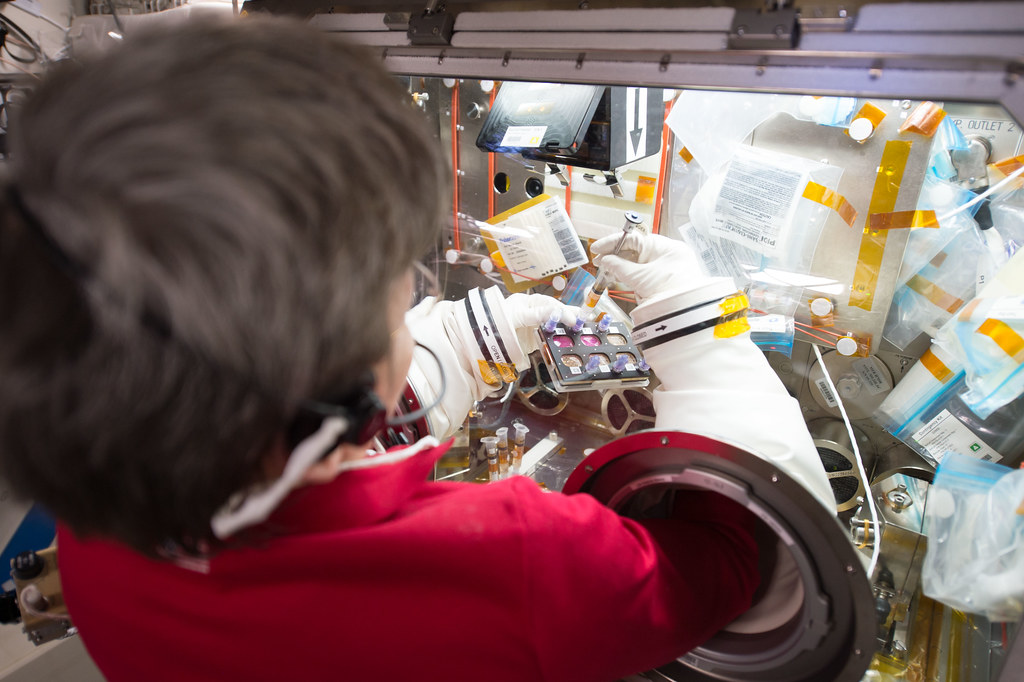Channels
Special Offers & Promotions
NASA’s SpaceX Crew-7 Astronauts to Embark on Six-Month Science Expedition, Supporting an Array of R&D on the Space Station

A new six-month science expedition in low Earth orbit (LEO) begins when four astronauts launch to the International Space Station (ISS) as part of NASA’s SpaceX Crew-7 mission. While onboard the space station, the Crew-7 astronauts, who will be part of Expeditions 69 and 70, will perform a variety of investigations sponsored by the ISS National Laboratory. This 7th rotational crewed mission from SpaceX, which is part of NASA’s Commercial Crew Program, is scheduled to launch from NASA’s Kennedy Space Center in Florida no earlier than August 25, 2023, at 3:49 a.m. EDT.
NASA astronaut Jasmin Moghbeli (commander) joins European Space Agency (ESA) astronaut Andreas Mogensen (pilot), Japan Aerospace Exploration Agency (JAXA) astronaut Satoshi Furukawa (mission specialist), and Roscosmos cosmonaut Konstantin Borisov (mission specialist) onboard SpaceX’s “Endurance” spacecraft.
In the coming months, a variety of visiting vehicles will launch to the space station. These vehicles will bring critical cargo and research for the crew to perform, including ISS National Lab-sponsored investigations in the areas of life and physical sciences, in-space production applications, advanced materials, and technology development. These endeavors will bring value to humanity through space-based inquiry, further our ability to explore, and enable a robust LEO market. Below are a few of the ISS National Lab-sponsored investigations that will be supported by the Crew-7 astronauts during their mission:
- Researchers from ISS National Lab Commercial Service Provider Rhodium Scientific and the University of Florida will continue their investigation of microbes that could help make products needed for living and working in space. This project, supported by the Defense Advanced Research Projects Agency (DARPA) as part of its Biomanufacturing: Survival, Utility, and Reliability beyond Earth (B-SURE) program, will continue to examine how gravity affects the capabilities of bacteria and yeast related to biomanufacturing. Microgravity induces changes in microorganisms, including alterations in cellular growth, structure, and metabolic activity, which can affect the biomanufacturing process.
- The U.S. National Science Foundation (NSF) will support multiple investigations in the life and physical sciences over the course of Expedition 70. An investigation from researchers at the University of California, Santa Barbara will study the role that the mucus lining in the human airway plays in the transport of liquid plug therapeutics to the lungs. Results could help improve drug delivery models for patient therapies. A team of researchers from the University of California, San Francisco has launched multiple tissue chip investigations funded through the National Institutes of Health. Now, the researchers will continue their tissue chip research in an NSF-funded investigation to better understand the relationship between immune aging and liver regeneration. Results could help researchers find new ways to enhance the liver healing process.
- A biotechnology investigation from the Naval Research Laboratory will examinehow microgravity and cosmic radiation may lead to new melanin variants that could be used to produce materials with applications both on Earth and in space. Potential applications of melanin-derived biomaterials include drug delivery systems, biological imaging, organic electronics, protective coatings, and energy storage devices.
- An investigation from Encapsulate aims to validate an automated tumor-on-a-chip system to grow patients’ cancer cells outside the human body. These cells could then be used for personalized screening to see how well chemotherapeutic drugs work for an individual patient’s cancer, enabling improved decision-making to select a course of treatment. This investigation was awarded through the Technology in Space Prize, funded by Boeing and the Center for the Advancement of Science in Space, Inc. (CASIS), manager of the ISS National Lab, through the MassChallenge startup accelerator program.
- An investigation from ISS National Lab Commercial Service Provider Redwire Space aims to validate the in-space production techniques of the company’s Manufacturing of Semiconductors and Thin-Film Integrated Coatings (MSTIC) technology. MSTIC could provide an autonomous manufacturing capability to construct semiconductor devices. The system can perform processes like deposition, etching, and cleaning. For this investigation, Redwire will use MSTIC to perform experiments related to semiconductor manufacturing and compare results with the same processes done on Earth.
Over the coming weeks, additional information will be made available about ISS National Lab-sponsored investigations launching on future Commercial Resupply Services missions to the space station. Learn more about the research and technology development sponsored by the ISS National Lab, including how to propose concepts for future space-based research.
About the International Space Station (ISS) National Laboratory
The International Space Station (ISS) is a one-of-a-kind laboratory that enables research and technology development not possible on Earth. As a public service enterprise, the ISS National Lab allows researchers to leverage this multiuser facility to improve life on Earth, mature space-based business models, advance science literacy in the future workforce, and expand a sustainable and scalable market in low Earth orbit. Through this orbiting national laboratory, research resources on the ISS are available to support non-NASA science, technology and education initiatives from U.S. government agencies, academic institutions, and the private sector. The Center for the Advancement of Science in Space, Inc. (CASIS) manages the ISS National Lab, under Cooperative Agreement with NASA, facilitating access to its permanent microgravity research environment, a powerful vantage point in low Earth orbit, and the extreme and varied conditions of space.
Media Partners


